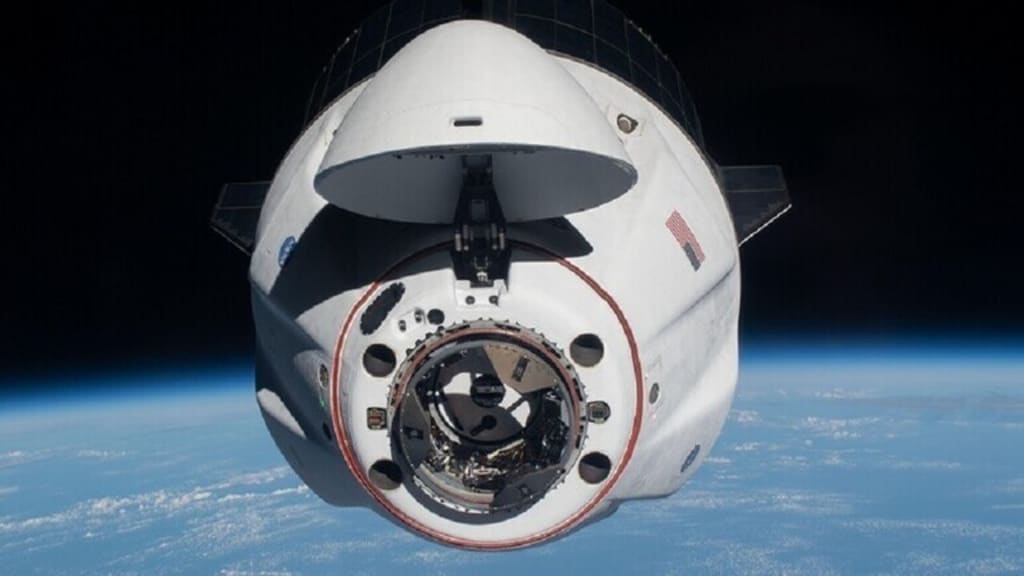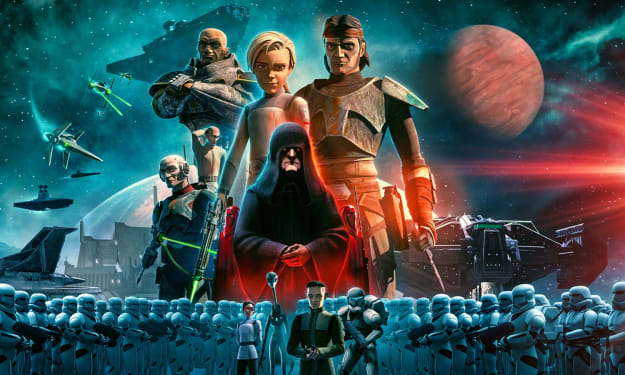Delaying the Dragon spacecraft's separation from the International Space Station
NASA announced that it has decided to postpone the date of the Crew Dragon's separation from the International Space Station and its return due to bad weather in the area where it will land on Earth.

And a statement issued by the agency said: “After assessing the expected weather situation in the area where the Crew Dragon vehicle will land on the ground after its return from the station, it was decided to postpone the date of the vehicle’s separation from the station, which was scheduled for March 8, at 03:00 local time.” East Coast of the United States (March 9, 11:00 Moscow time).
"Experts expect the vehicle to separate from the station no later than the evening of March 9, EST (March 10 Moscow time)," the statement added.
The spacecraft will carry with it to Earth the Russian astronaut, Anna Kikina, who had gone to the station in October 2022 with NASA astronauts Nicole Mann and Josh Kasada, and Japanese astronaut Koichi Wakata.
Currently on board the International Space Station are Roscosmos astronauts Sergey Prokopyev, Dmitr Petilin, Andrei Vidyaev, Anna Kikina, NASA astronauts Josh Cassada, Frank Rubio, Nicole Mann, Stephen Bowen, Woody Hoburg, Emirati astronaut Sultan Al Neyadi, and astronaut Japanese Koichi Wakata. Source: TASS
Arianespace expands its reliance on European space rockets
Arianespace announced that it plans to increase space launches by relying on European space rockets.
In an interview on the subject, CEO of the company, "Arianespace expects to carry out up to 15 space launches per year by 2025 using the new European Ariane 6 and Vega C rockets."
He added, "Our priorities have been clearly defined: we want to launch Ariane 6 and Vega C as soon as possible with complete reliability.. It is important to achieve production stability, by 2025-2026 we plan to launch more than 10 Ariane 6 missiles and 4 Vega C missiles each year, so to meet demand increase in space launches.
The CEO of the company indicated, "Arianespace has received 28 requests to carry out space launches using Arianespace missiles, including 18 requests from Amazon to send its satellites to Earth's orbits, and it has also received 13 requests for launches that will use Vega C missiles." His company to rely on European space rockets has become necessary after the cancellation of 11 space launches of Russian Soyuz rockets from the Kourou space base due to the sanctions imposed by the European Union on Russia.
The director of the company expressed his hope that European governments will find ways to compensate the space industry companies to face the inflation that many countries suffer from. Source: Vesti
US intelligence: Russia is the main competitor of the United States in space
A US intelligence report indicates that Russia remains the main competitor of the United States in space despite the sanctions imposed on it.
The report, which was prepared and published by the US intelligence services, stated: "Russia will remain the main competitor of the United States in space." Nevertheless, the intelligence services believe that the capabilities of the Russian space sector and the implementation of "long-range space programs" may become limited due to the sanctions imposed, the "numerous problems that the space sector suffers from" as well as "competition for resources" between the various institutions.
According to US intelligence, Russia will focus under these circumstances on satellite communications, geolocation and reconnaissance as areas of special importance and crucial to national security.
The report draws attention to the fact that Russia has announced that commercial infrastructure used for military purposes may become legitimate targets for retaliatory strikes. The report refers to the continuous improvement of anti-satellite weapons, including missiles and ground jamming of GPS signals, satellite communications and radars.
It should be noted that Russian President Vladimir Putin earlier described the US sanctions imposed on the Russian space sector as an attempt to limit Russia's development.
For its part, the Ross Cosmos Foundation announced earlier that the US sanctions will not affect the implementation of the approved tasks and plans. Source: Novosti
A devastating asteroid may collide with Earth on Valentine's Day in 2046!
NASA has warned that a devastating asteroid the size of the Leaning Tower of Pisa may collide with Earth on Valentine's Day 2046.
The asteroid discovered on February 28, called 2023 DW, may approach dangerously close to Earth about 20 years from now, on February 14 at 4:44 pm ET, but the place where it will be located is not yet known, with a probability of 1 in between. 600 to collide directly with our planet, tweeted officials from NASA's Planetary Defense Coordination Office.
Projected areas of impact extend from the Indian Ocean to the Pacific Ocean and west to the eastern coast of the United States.
Asteroid 2023 DW is estimated to be about 165 feet (50 metres) in diameter, or roughly the length of an Olympic swimming pool. Scientists say that as of March 8, the European Space Agency's Near-Earth Object Coordination Center predicted that there is one possibility out of 625 for the asteroid to collide directly with Earth, while these possibilities continue to be recalculated daily.
In the event that the 2023 DW space rock collides with our planet, the event will be similar to the 12-megaton Tunguska event that struck Siberia 114 years ago.
This asteroid caused a nuclear explosion that would have destroyed a large metropolitan area, but it fell into a forest, cutting down more than 80 million trees.
NASA announced the discovery of 2023 DW, noting that it "takes several weeks of data to reduce uncertainties and adequately predict its orbits for years into the future."
The possibility of an asteroid hitting Earth has changed over the past week. And on the first of March, an Italian astronomer showed that there is a possibility of one in 12,000 chances of the 2023 DW colliding with the Earth, but the odds increased the next day to one in every 710, and now the odds are one in every 560.
DW 2023 is currently ranked at the top of NASA's risk list at No. 1 on the Turin Scale, which means there is no cause for concern yet.
The Turin Scale is a way to classify the extent of the danger of near-Earth objects (NEO), such as asteroids and comets, and the extent of their future collision with our planet. The scale is based on a rating from 0 to 10, where 0 indicates that the possibility of collision is almost non-existent, while a rating of 10, which is the worst, indicates that a collision with the ground is inevitable.
Such events occur on average once every 100,000 years, or less, according to NASA. However, the space agency notes that it will alert the public if 2023 DW reaches 3 degrees on the scale.
The last major impact was on February 15, 2013, known as Chelyabinsk, when a 60-foot-wide meteorite hit Earth's atmosphere with an energy estimated at 500,000 tons of TNT, sending a shock wave twice around the world. It caused widespread damage and injured more than 1,600 people.
And the direct impact of 2023 DW will not be like the asteroid that killed the dinosaurs, which is 12 km wide, and which crashed into Earth 66 million years ago. However, DW 2023 could cause serious damage if it fell near a major city or densely populated area given that it is about twice the size of the Chelyabinsk meteorite. Source: Daily Mail
About the Creator
News Correct
Information WorldWide MORE INFORMATION






Comments
There are no comments for this story
Be the first to respond and start the conversation.